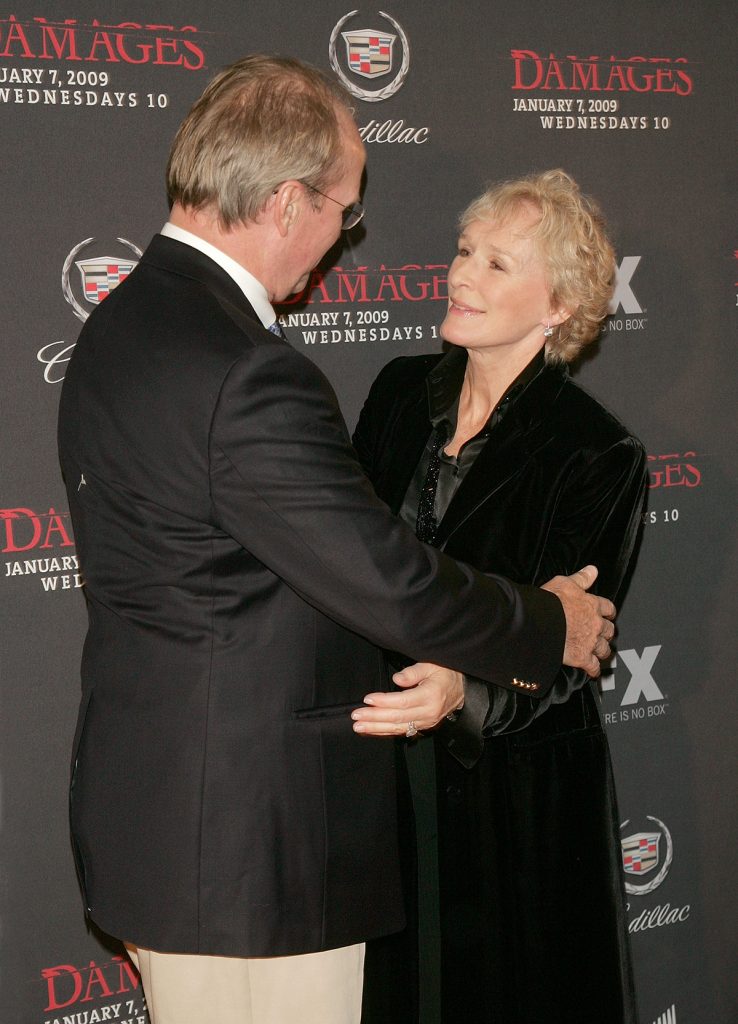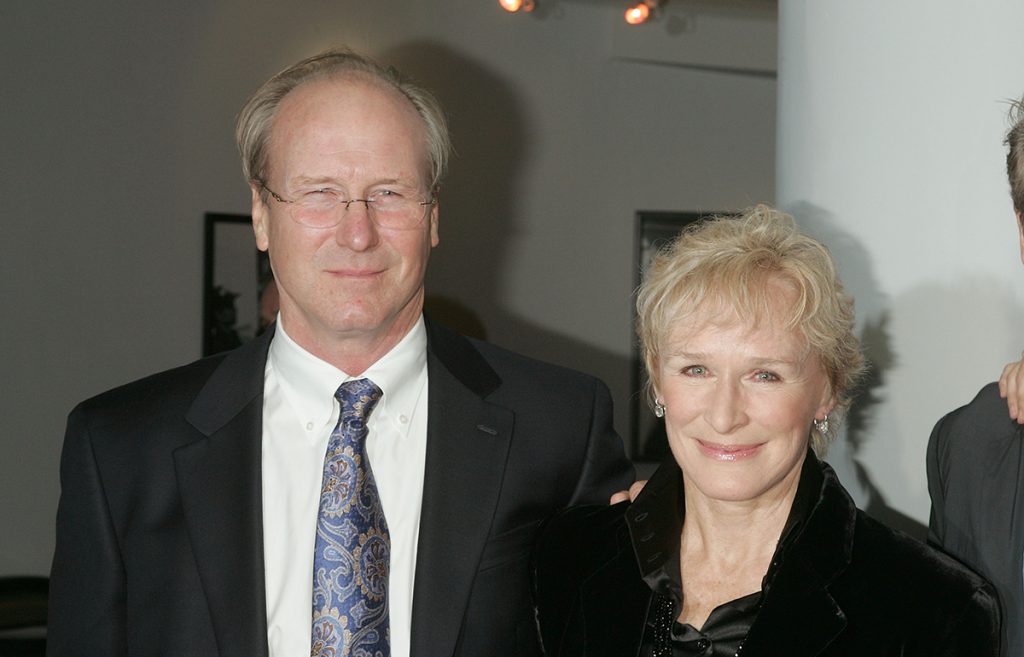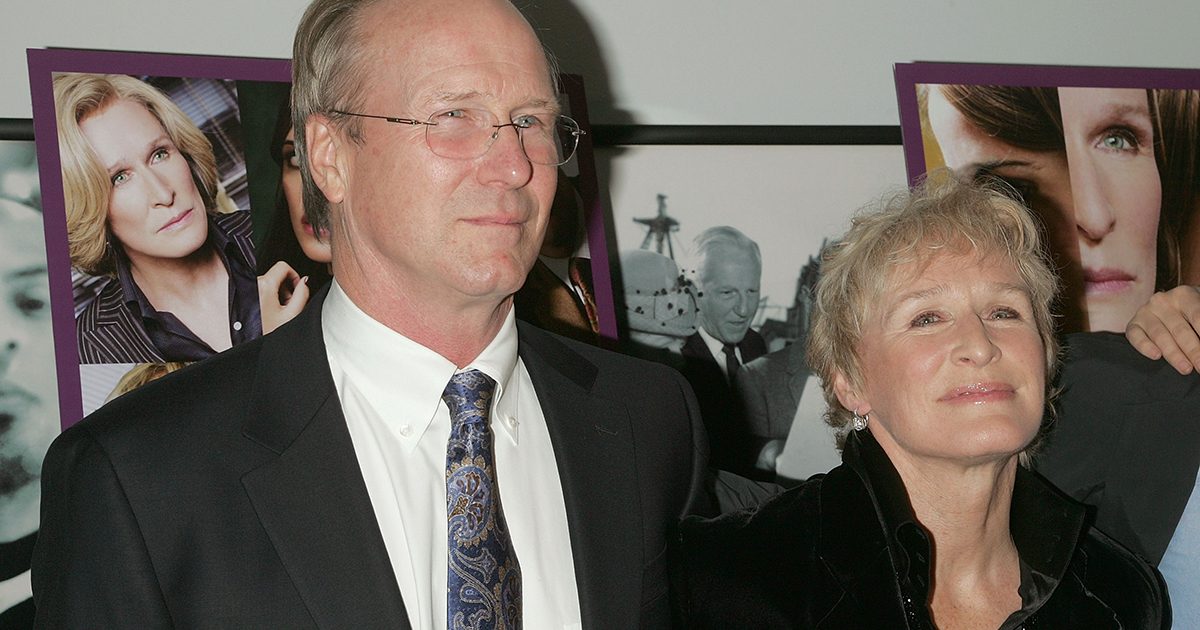Treating Late-Stage Prostate Cancer
- Golden Globe- and Tony Award-winning actress Glenn Close, 74, is paying tribute to her late friend, fellow actor and Oscar winner William Hurt, after learning of his passing from prostate cancer over the weekend. Hurt was 71 years old.
- Treatment of late-stage prostate cancer, also called metastatic or stage 4 prostate cancer, varies depending on the patient's current health status and how aggressive the cancer is at diagnosis.
- If the disease has reached the later stage, as it did for Hurt, some treatments may be palliative to help relieve symptoms rather than curative therapies designed to stop or slow cancer growth.
- There's no known curative treatment for late-stage prostate cancer, but there are many drugs being investigated in the clinical trial space. These treatments will likely play a role in the future management of metastatic prostate cancer.
"I have to say that Bill Hurt was one of the most beautiful human beings that I'd ever seen," Close said in an Instagram video.
Read MoreView this post on Instagram
"The thing about doing a movie like that, spending so much time together, it really, really creates lasting friendships," Close said. "I think whenever we, by some lucky chance, cross each other's paths, time just kind of falls away because you've had this intense experience together. And that's what I felt about Bill."
"We had some good times. But I'm thinking of him, I'm thinking of his family, I'm thinking of all the moments that he gave us and the movies that he was in and the shows that he did … He was an actor to his very molecules, and I just want to mark his passing as someone who appreciated him as an artist and as a friend. Rest in peace, Bill," Close concluded.
Another one of Hurt’s many co-stars, Bryce Dallas Howard, also posted a tribute to the late Hurt on Monday morning. (Hurt and Howard played a father-daughter duo in the 2004 thriller The Village, which was Howard’s first-ever movie.)
View this post on Instagram
“Your undeniable presence on screen broke the mold a thousand times over and I am so grateful to have spent the time that we did together filming The Village and even after filming was done for you but you stayed with me at Sweetwater Farm anyways to make sure I wasn't alone,” Howard, now 41, wrote in an Instagram post.
“That's the kind of person Bill was. Someone who gave everything and went out of his way to support me and others,” she added. “I'll always remember his generosity of spirit and his love of stories and truth that passion ignited the same love of stories for me. â£â£”
It was announced in May 2018, when William Hurt was 68 years old, that the actor had been diagnosed with late-stage prostate cancer that had spread to his bones. He passed away Sunday at his home in Portland, Ore.
"It is with great sadness that the Hurt family mourns the passing of William Hurt, beloved father and Oscar winning actor, on March 13, 2022, one week before his 72nd birthday," the family said in a prepared statement obtained by Variety. "He died peacefully, among family, of natural causes. The family requests privacy at this time."

Glenn Close & William Hurt: Losing a Friend to Cancer
Grief is inevitable and essential when you're forced to say goodbye to a loved one, especially if you're losing that person to cancer, like in Glenn Close's case losing her friend William Hurt to prostate cancer.
Everyone's grief journey looks and feels different, but therapy and support groups can also be wonderful options to explore. It is also important to keep in mind that time doesn't heal everything, but it certainly helps.
'Therapy Saved My Life': After Losing a Loved One, Don't be Afraid to Ask for Help
In an earlier interview with SurvivorNet, Camila Legaspi shared her own advice on grief after her mother died of breast cancer. For her, therapy made all the difference.
"Therapy saved my life," Legaspi said. "I was dealing with some really intense anxiety and depression at that point. It just changed my life. Because I was so drained by all the negativity that was going on, going to a therapist helped me realize that there was still so much out there for me, that I still had my family, that I still had my siblings."

Treating Late-Stage Prostate Cancer
Recent treatment advancements for late-stage prostate cancer are giving patients new hope.
Treatment of late-stage prostate cancer, also called metastatic or stage 4 prostate cancer, varies depending on the patient's current health status and how aggressive the cancer is at diagnosis. But new treatment advancements are making more options available. (It should be noted that it remains unclear what kind of treatment, if any, William Hurt was receiving to treat his prostate cancer.)
Dr. Jeff Tosoian, a urologic oncologist at Vanderbilt University Medical Center, previously told SurvivorNet that there are two primary situations in which a person may be diagnosed with late-stage prostate cancer.
First, there are those who have been treated for local prostate cancer and it recurs and spreads to other areas, "or there are folks who never knew they had a localized prostate cancer and present with cancer, both in the prostate and in other places in the body." There are little details out there about Hurt's prostate cancer diagnosis, so it is unclear which of these two categories the late actor falls into.
New Hope for Later Stage Prostate Cancer Patients: The PARP Inhibitor Olaparib
If the disease has reached the later stage, like in William Hurt's case, some treatments may be palliative to help relieve symptoms rather than curative therapies designed to stop or slow cancer growth.
And while there's no known curative treatment available for late-stage prostate cancer, there are many drugs being investigated in the clinical trial space for prostate cancer patients with late-stage disease. These treatments will likely play a role in the future management of metastatic prostate cancer.
Those treatment advancements include:
- Targeted therapy: These drugs interfere with specific molecular pathways and can target and destroy specific cancer cells with fewer side effects than traditional chemotherapy.
- PARP inhibitors: These drugs work to stop the activity of a specific protein involved in DNA repair. In normal cells, PARP quickly repairs damaged DNA. But in cancer cells, defective DNA cannot be repaired effectively when a patient is undergoing treatment without a PARP inhibitor.
- Hormone therapy: This treatment is used when patients are unable to have cancer surgically removed because it has spread to other parts of the body. Even though hormone therapies don't cure late-stage prostate cancer, they may help keep it from growing and spreading further.
Other treatment options may include:
- Chemotherapy
- Radiation
- Surgery
- Clinical trials
- Cancer vaccine
Contributing: Lindsay Modglin
Learn more about SurvivorNet's rigorous medical review process.


